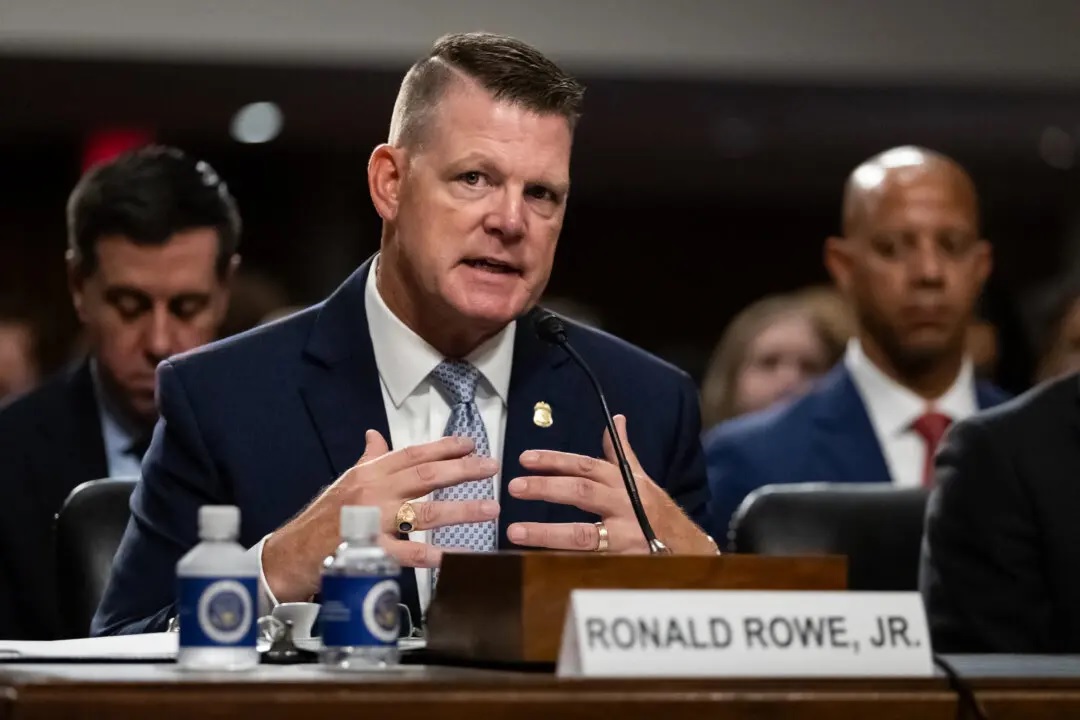According to a whistleblower, top officials at the Secret Service discouraged agents from requesting additional security for Donald Trump’s rally in Butler, Pennsylvania, last month, where a would-be assassin nearly killed the former president. The whistleblower’s claims were detailed in a letter from Sen. Josh Hawley (R-Mo.) to Secret Service Acting Director Ronald Rowe, in which Hawley demanded clarification on what he called an “apparent contradiction” in Rowe’s earlier statement that no security assets were denied for the event.
“You must explain this apparent contradiction immediately,” Hawley wrote.
The whistleblower alleged that Secret Service headquarters instructed agents overseeing the Butler campaign event not to submit a formal manpower request for additional security, a process typically initiated by lead advance agents and submitted to the local field office—in this case, Pittsburgh. Such requests, which specify the needed personnel and security assets, are reviewed by the Secret Service’s Office of Protective Operations – Manpower.
By allegedly advising agents not to request extra security in the formal process, the Secret Service was “effectively denying these assets through informal means,” Hawley claimed in his letter to Rowe.
The whistleblower also claimed that officials from the Secret Service’s Office of Protective Operations – Manpower preemptively informed the Pittsburgh field office that the Butler rally would not receive additional security resources because Trump is a former president, not the current President or Vice President.
“The manpower request did not include extra security resources because agents on the ground were told not to ask for them in the first place,” Hawley stated.
Among the resources that were requested were counter-sniper teams, which were ultimately approved just a day before the event, and personnel from the counter surveillance division (CSD), who were not present at the rally. Hawley noted that CSD personnel, had they been there, could have apprehended the gunman who was spotted with a rangefinder in the parking lot.
During testimony before the Senate on July 30, Rowe claimed that “all assets requested were approved” for Trump’s rally in Pennsylvania. The Secret Service has been contacted for comment on these allegations.
Hawley’s public disclosure of the whistleblower’s claims came shortly after the head of the Secret Service’s Pittsburgh field office and at least four other agents were placed on leave. This action was taken amid an ongoing investigation into how 20-year-old Thomas Matthew Crooks came so close to assassinating Trump on July 13. Those sidelined include one member of Trump’s personal protective team and four Secret Service members, including the special agent in charge. These agents remain employed but are currently barred from field and investigative work.
Additionally, another whistleblower revealed in July that local law enforcement had offered to assist with drone technology at the rally, but the Secret Service allegedly declined the offer. Hawley addressed this in a letter to Homeland Security Secretary Alejandro Mayorkas on July 25, demanding answers about the whistleblower’s allegations that the Secret Service “repeatedly” rejected the offer.
“The night before the rally, US Secret Service repeatedly denied offers from a local law enforcement partner to utilize drone technology to secure the rally,” Hawley wrote, citing the whistleblower.
The Secret Service operates under the Department of Homeland Security.
 Telegram is where we really talk. Don't miss out!
Telegram is where we really talk. Don't miss out!







